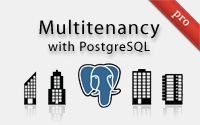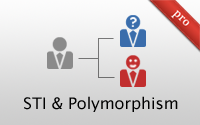Categories
- Active Record
- Active Resource
- Active Support
- Administration
- Ajax
- APIs
- Authentication
- Authorization
- Background Jobs
- Caching
- Code Walkthrough
- Controllers
- Debugging
- Deployment
- eCommerce
- Forms
- Mailing
- Models
- Performance
- Plugins
- Production
- Rack
- Rails 2.0
- Rails 2.1
- Rails 2.2
- Rails 2.3
- Rails 3.0
- Rails 3.1
- Rails 3.2
- Rails 4.0
- Refactoring
- Routing
- Search
- Security
- Testing
- Tools
- Views
Applied Filters:
revised x
will_paginate (revised)
Almost every Rails application needs pagination, and will_paginate is a great way to go. Here I show you how to set it up, customize the way it looks, and see how it compares with Kaminari.
(6 minutes)
Dynamic Forms
Learn how to add fields to a form dynamically using another form, complete with custom field types. It's fieldception!
(14 minutes)
ActionController::Live
Server-sent events allow you to trigger events on the browser from a persistent connection to the server. This requires Rails stream data which can be done through ActionController::Live, a feature upcoming in Rails 4.
(14 minutes)
Autocomplete Search Terms
Learn how to add autocompletion to a search form and improve performance using Rack middleware, caching and switching from SQL to Redis.
(17 minutes)
Guest User Record
Instead of presenting a sign up form to the user, consider creating a temporary guest record so the user can try out the application without filling in their information up front. They can then become a permanent member afterwards.
(9 minutes)
Multitenancy with Scopes
A multi-tenant application can be difficult to implement because the data for each tenant must be completely separate. Here I show how to do this using subdomains and default scopes in Active Record.
(12 minutes)
Tagging
There are several gems to help implement tags in a Rails app. Here I show you how to integrate acts-as-taggable-on and then show how to do it from scratch.
(11 minutes)
Multitenancy with PostgreSQL
PostgreSQL Schemas can help create a multi-tenant app by keeping data separate at the database layer. Integrating with migrations can be tricky though, so watch this episode for the full details.
(11 minutes)
STI and Polymorphic Associations
Single Table Inheritance (STI) can help organize branching logic into separate classes, but a polymorphic association may be a better fit if there are unique database columns.
(14 minutes)
Cache Digests
The cache_digests gem (also included in Rails 4) will automatically add a digest to the fragment cache key based on the template. If a template changes the cache will auto-expire. But watch out for the gotchas!
(7 minutes)










